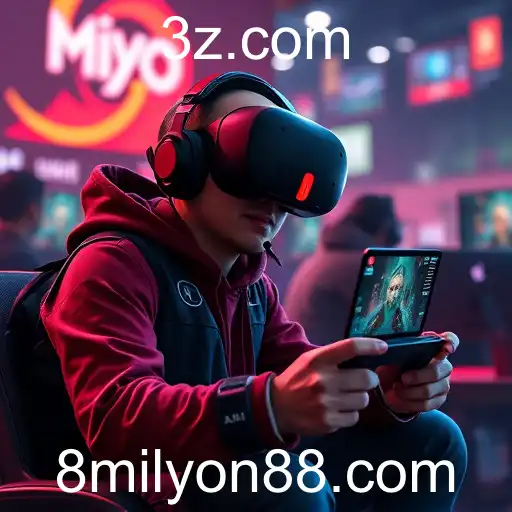
Exploring the intersection of digital gaming and e-commerce platforms as they define modern consumer experiences.
In today's rapidly evolving digital landscape, the interconnection between digital gaming and e-commerce has become increasingly apparent. This fusion, notably captured by platforms like 'milyon88', reflects a broader trend where entertainment and shopping converge, reshaping how consumers engage with technology.
Digital gaming has expanded from mere entertainment into a multifaceted industry that influences various sectors. The rise of online games has created opportunities for new economic models, including microtransactions, in-game advertising, and subscription services. These models have started to bleed into e-commerce spaces, offering consumers interactive and immersive experiences. As a result, businesses are keen to harness this engagement, integrating gamification into online shopping experiences.
E-commerce platforms have adapted by adopting features like reward systems, augmented reality trials, and interactive product displays. Such innovations aim to replicate the engaging elements of gaming to maintain consumer interest. In turn, this increased engagement can lead to higher conversion rates and better customer retention.
Moreover, the demographic overlap between gamers and online shoppers has led to collaborations where gaming platforms now host virtual marketplaces. This not only promotes digital goods but also drives traffic to broader e-commerce offerings. For instance, limited edition game-related merchandise often becomes available on these platforms, creating scarcity and driving demand.
In the current climate, technology acts as a bridge between gaming and e-commerce, powered by advancements in AI and machine learning. These technologies facilitate personalized recommendations and real-time analytics, providing businesses with insights into consumer behavior. This data-driven approach enables platforms like 'milyon88' to tailor experiences and anticipate trends, staying ahead in a competitive market.
Looking to the future, the synergy between digital gaming and e-commerce is poised to grow stronger. Virtual reality and blockchain are likely to play significant roles in this evolution, offering new ways to experience products and secure transactions. As these technologies mature, they will further solidify the integration of gaming dynamics into the shopping experience.
Overall, the blend of digital gaming with e-commerce is redefining consumer expectations, prompting businesses to innovate continually. As this trend continues to unfold, it holds the promise of creating an enriched, interactive digital economy where the boundaries between play and purchase are increasingly blurred.




